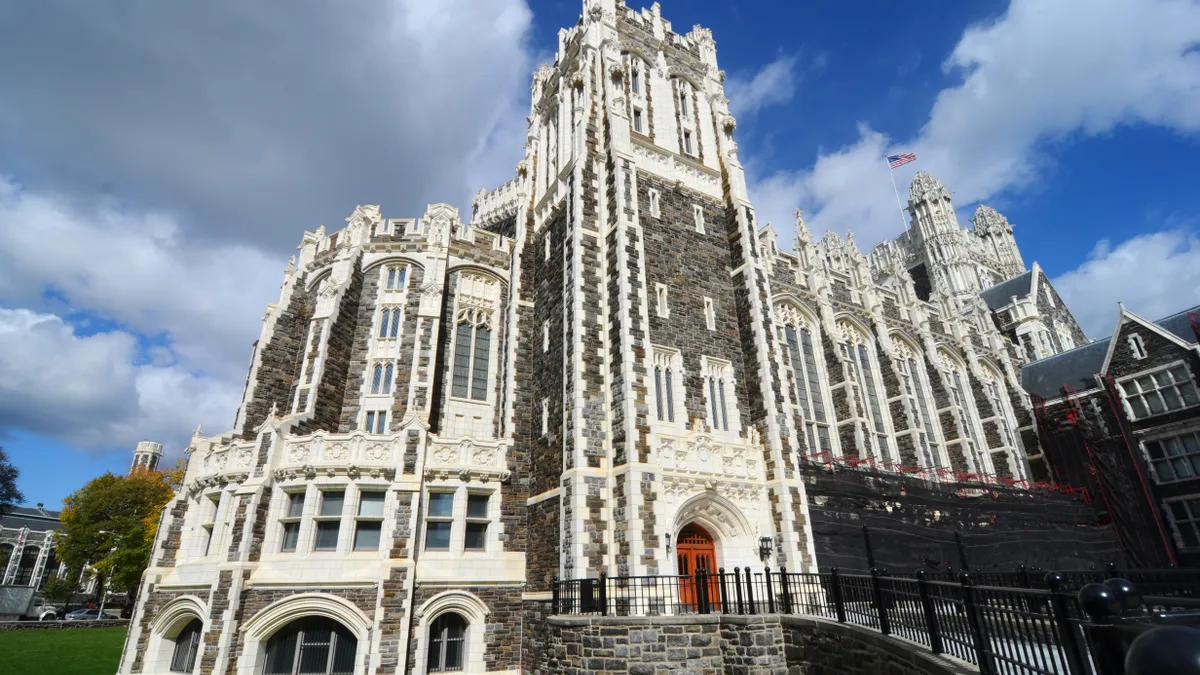Dive Brief:
- The City University of New York (CUNY) is nearing the end of its search for a new chancellor after at least two serious contenders withdrew from the process, The Wall Street Journal reported, noting that a pick was expected by mid-December.
- The latest candidate to back out was Robert Hughes, director of K-12 education at the Gates Foundation, who withdrew from the CUNY search in December, The Journal reported. The university wouldn't confirm the names of candidates or their withdrawals. CUNY spokesman Frank Sobrino said in a statement emailed to Education Dive that the search "has been thorough and is nearly concluded" and CUNY is "delighted by the extraordinary quality of the candidates who have come forward."
- Another reported candidate, New York Public Library President Anthony Marx, withdrew in August. The next CUNY chancellor will replace James Milliken, who took over as the University of Texas System's chancellor this academic year.
Dive Insight:
CUNY's struggle, as The Journal put it, to find a leader for its system mirrors that of colleges around the country as the complex and often high-pressure job generates increasing turnover and shrinking applicant pools for replacement.
In the case of CUNY, the new chancellor will take over a system with 25 campuses in New York City as well as a diverse student body of more than half a million degree- and non-degree-seeking students. In its marketing for the job, the university said the "overarching challenge" for its next leader will be "to build on the university's momentum and to re-define CUNY in the public imagination as a new kind of university, combining uncompromising academic excellence with a fundamental commitment to inclusion, opportunity, and student success."
But there are more practical and political challenges as well. The Journal noted some buildings "are in disrepair, buckling under billions of dollars in deferred maintenance" and the faculty union is pushing for higher adjunct wages.
It also noted New York Gov. Andrew Cuomo ended the year by vetoing a bill that would have increased state funding for CUNY. The need for a chancellor to manage both state and city oversight of the university system could be "a turnoff for candidates who enjoy autonomy," The Journal wrote.
Presidents, especially at public universities, face numerous pressures and often polarized stakeholders. That could largely explain increasing turnover rates. The average tenure for chief executives at colleges dropped from 8.5 years in 2006 to 6.5 years in 2016, according to the American Council on Education's (ACE) latest American College President Study. At the same time, involuntary presidential departures have been increasing at a faster rate than voluntary ones, according to research from Southern Methodist University cited by The Chronicle of Higher Education.
Those stresses could be scaring potential candidates away from the job. The University of Minnesota, for example, saw the number of applicants for its since-filled president position come in around half of what was generated the last time the position was open, in 2010. The university ultimately hired Joan Gabel, its first female president and currently the provost of the University of South Carolina.









